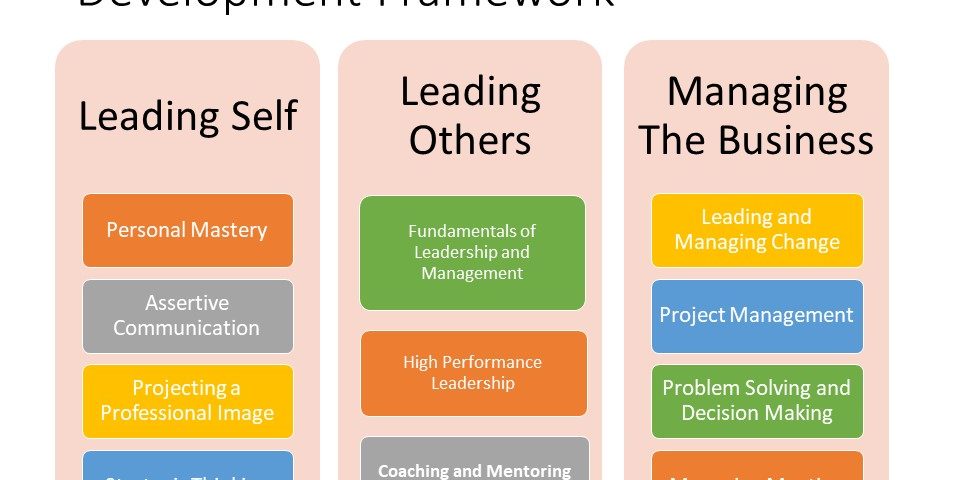“Everything rises and falls on Leadership” – John Maxwell
This means that a lo t is at stake in your organizational leaders’ ability to steer whichever part of the organization they are expected to steer so that the company can get to where it needs to be. The question now is, are your managers equipped and ready to bring organizational performance to the next level? What is in your Leadership and Management Development Program? Have you invested enough to help them become capable of not just leading people but managing all the resources the company entrusted to them? Remember that a lot is at stake here.
t is at stake in your organizational leaders’ ability to steer whichever part of the organization they are expected to steer so that the company can get to where it needs to be. The question now is, are your managers equipped and ready to bring organizational performance to the next level? What is in your Leadership and Management Development Program? Have you invested enough to help them become capable of not just leading people but managing all the resources the company entrusted to them? Remember that a lot is at stake here.
While great leaders/managers are a major factor in employee engagement, according to the Gallup Poll, Managers account for 70% of the reasons why employees are disengaged. This shows that it is worth the investment to develop the leadership and management capabilities of your managers and supervisors.
I’ve learned from experience that developing managers and building their capacity take more than teaching them the fundamentals of leadership and management. There are several competencies that I believe a leader need to develop in order to become effective in their work. I’d like to categorize these as the three most basic group of competencies; Leading Self, Leading others, and Managing the Business.
Leading Self
 I really think that you can’t effectively lead others if you can’t lead yourself first. Your Leadership and Management Development Program needs to have this. Leading the self means recognizing all your personal devices, your strengths and opportunities for improvement and being able to manage all these to work with oneself and others in pursuing a goal. Follower-ship is a response to one’s ability to get people’s buy-in. Getting that buy-in takes a lot. It’s more than just presenting a logical plan. It takes buying-in on the whole person. Here are some competencies that I believe leaders should develop to build their personal leadership brand. Click the title if you wish to see more of the programs we’ve developed these competency needs.
I really think that you can’t effectively lead others if you can’t lead yourself first. Your Leadership and Management Development Program needs to have this. Leading the self means recognizing all your personal devices, your strengths and opportunities for improvement and being able to manage all these to work with oneself and others in pursuing a goal. Follower-ship is a response to one’s ability to get people’s buy-in. Getting that buy-in takes a lot. It’s more than just presenting a logical plan. It takes buying-in on the whole person. Here are some competencies that I believe leaders should develop to build their personal leadership brand. Click the title if you wish to see more of the programs we’ve developed these competency needs.
Personal Mastery – Leaders who demonstrate personal mastery have special sense of purpose. They can accurately assess current situations, recognize how their own mental model affect their understanding and attitude towards these situations. They can muster the will to direct their action towards the achievement of their goals and respond productively to people and other variables in front of them. They are curious and humble enough to inquire and confident enough to advocate ideas and actions.
At the core of personal mastery is what we call emotional intelligence or EQ. It starts with self-awareness that grows into self-regulation, being socially aware that leads to better relationship management.
Assertive Communication – Leaders are able to assert themselves. Not only that, they promote assertiveness in their team by demonstrating they listen well and can strike an engaging conversation not just a cascading of instruction. Very few Filipino managers are capable of this. Many fail to engage their people because they keep the communication mono-directional, and it’s often downward. Developing one’s assertiveness opens up opportunities for collaboration and harnessing the collective power of teamwork
Projecting a Professional Image – Leadership reputation is a compendium of things we say, how we present ourselves, and how we respond to different social situations. Leaders’ behaviors are magnified. It helps to have leaders who carry themselves well when conducting business.
Strategic Thinking – “The success of an intervention depends on the interior condition of the intervenor.” – Bill O’Brien
I think that successful leaders and managers think strategically and has a method for doing so. They also have this big sense of ownership that leads them to continually search for better ways of doing things that lead to achievement of goals.
Leading Others
 “You don’t manage people; you manage things. You lead people” – Admiral Grace Murray Hopper
“You don’t manage people; you manage things. You lead people” – Admiral Grace Murray Hopper
Leaders need to recognize the difference between leading and managing. At ExeQserve, we’ve made sure that the distinctions are clear and that the managers know when it is best to lead and when to manage. Our Leadership and Management Development Program ensures that they are properly equipped for both.
Fundamentals of Leadership and Management – This an important starting point one’s journey of leading others. It helps to know the fundamentals and learn how to use them effectively at work. This program covers the needed transition, leading teams, and applying the Planning, Organizing, Directing and Controlling in managing work.
High Performance Leadership – This program focuses on the practices of exemplary leaders. We used Kouzes and Posner’s Leadership Challenge 5 Practices as a high-level framework and take it a bit further, I believe by really digging into what needs to be done build alignment, share vision, lead change, empower others and engage people.
Coaching and Mentoring – Carrying out the processes of coaching and mentoring provides an excellent opportunity for managers and employees to identify developmental needs. While planning and monitoring work, deficiencies in performance become evident and coach and team member can address them. Areas for further enhancing already good performance also stand out, and action can be taken to help successful employees improve even further, even get them ready for bigger responsibility. This is an important skill for leaders to have especially now that leaders are expected to be more involved in their people’s development.
Managing the Business
 This part of leadership and management development provides for the necessary skills to, well, manage the business. This is not exhaustive. We believe that the differences in business and the complexity of the managerial work will require more competencies, but we believe the ones in our list are the most basic.
This part of leadership and management development provides for the necessary skills to, well, manage the business. This is not exhaustive. We believe that the differences in business and the complexity of the managerial work will require more competencies, but we believe the ones in our list are the most basic.
Leading and Managing Change – When effecting changes in the organization, managers are dealing with people with mindsets and comfort zones that were built overtime. People tend to resist change because they do not want to step out of these comfort zones–they like to stay in an environment they are comfortable with. There are a number of things that need to be taken in to mind to help people accept and overcome the pain of change. This course aims to equip change managers with the knowledge skills and right mindset in managing change. They will also learn to identify the need for change and strategize their way to successful change implementation.
Project Management – This course provides a coverage of the essentials of Project Management and facilitate an understanding of the concepts and principles throughout the project life-cycle. More than just understanding the concepts, an experienced Project Management Professional (PMP®) will help the participants relate them to real world situations.
Problem Solving and Decision Making – Most managers and supervisors solve workplace problems using quick fix, short-term solutions based on limited experience and data. The results are problems that recur and often get worse, demoralizing the whole organization. Organization leaders of today need a good balance of creative and critical thinking to produce workable, effective and innovative solutions.
Managing Meeting – One of the biggest complaints about most organizations is meetings… they waste too much of our precious time. This is bad news for organizations. Meetings are important because that is where an organization’s culture and climate perpetuates itself. Problem is that many managers wing their meetings. They are ill-prepared and don’t facilitate well. There is obviously a need for them to equip themselves better for this important job.
Leadership and Management Development is crucial to organizational goals. Addressing it solves a lot of the poor management decisions that typical pervades in organizations. If your company does not have a strategy have and wish to have one, talk to us.








